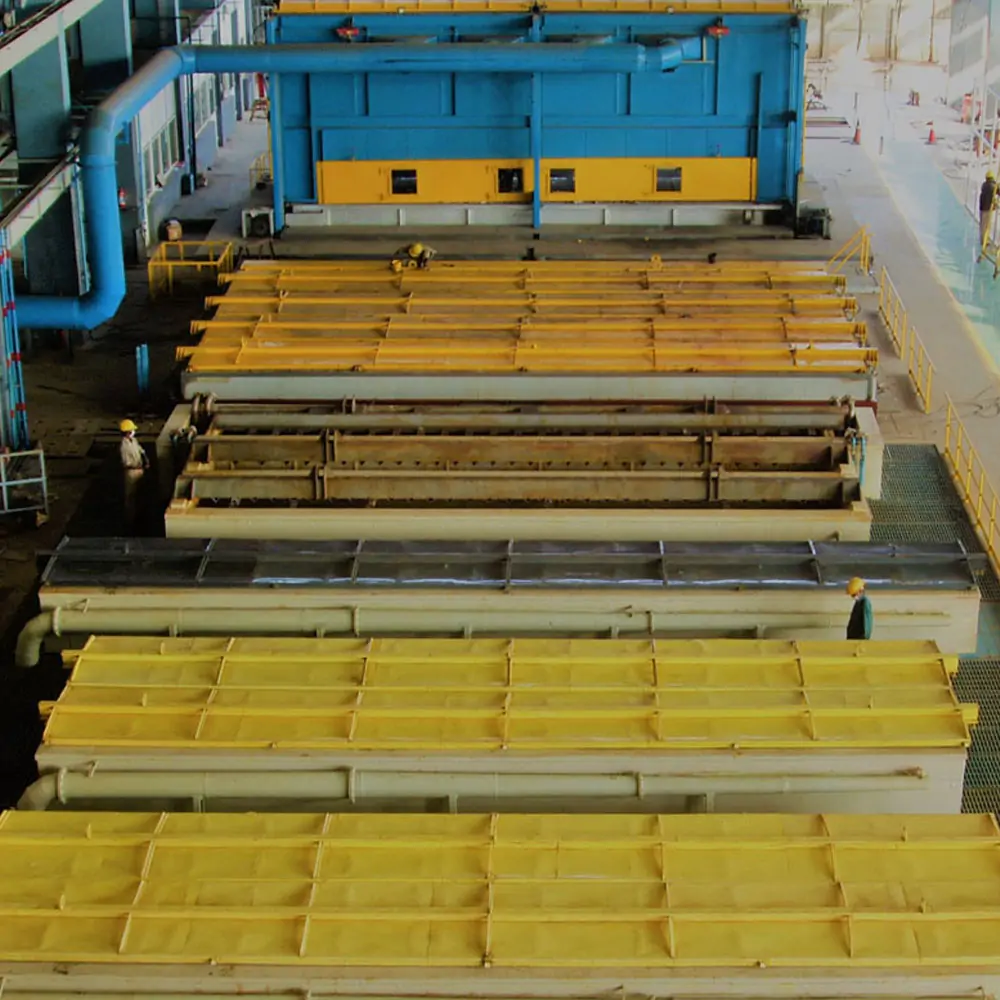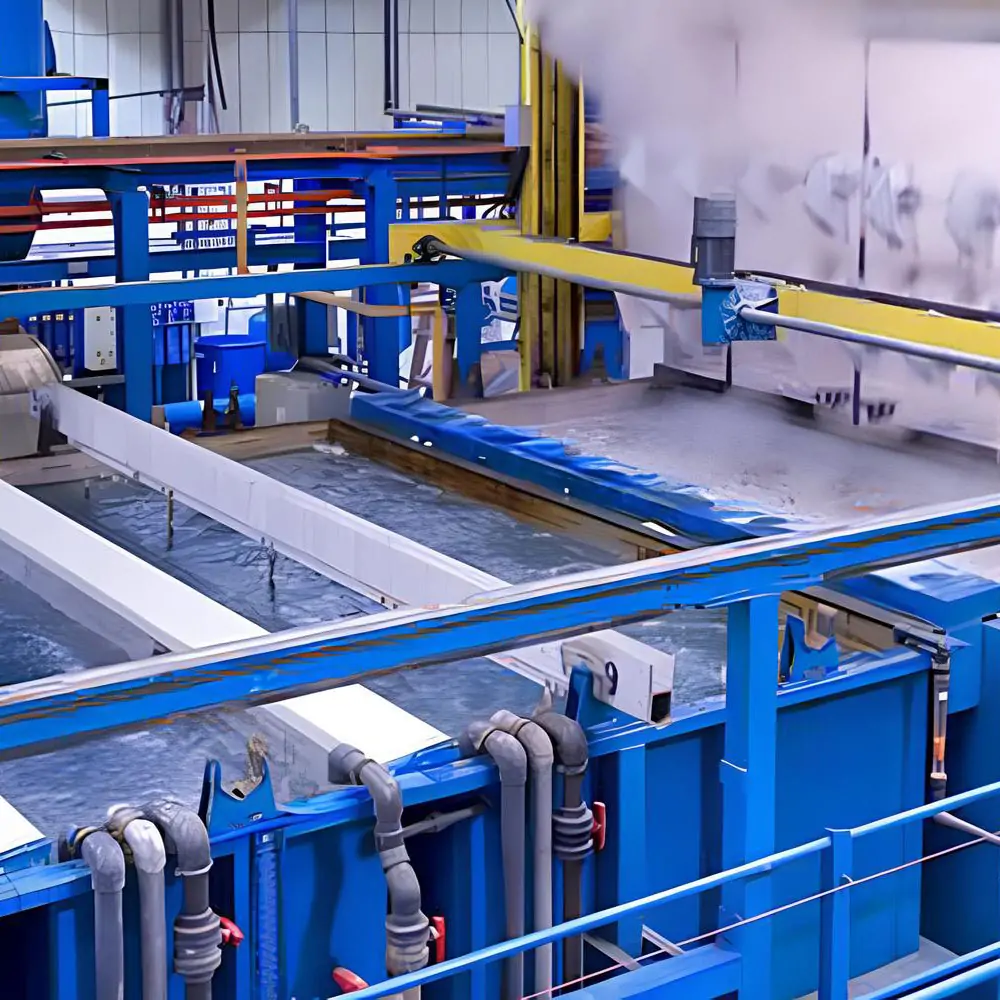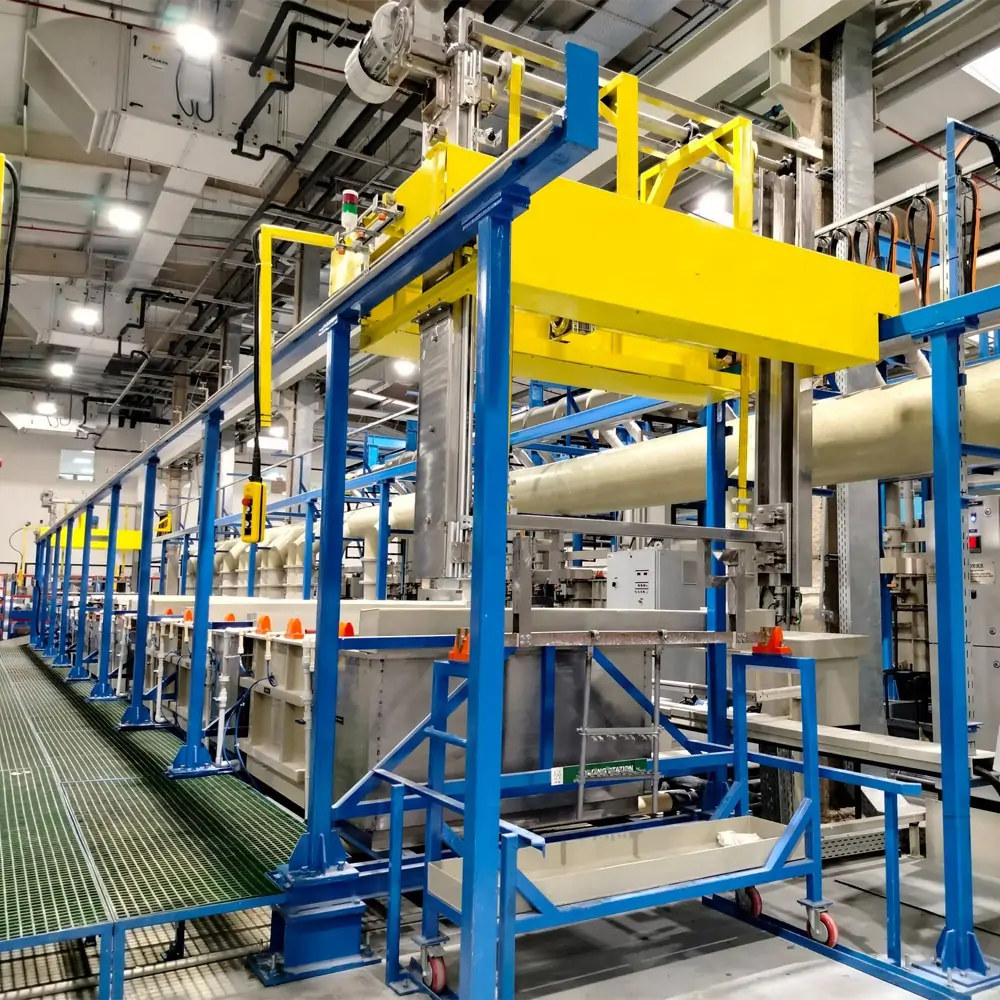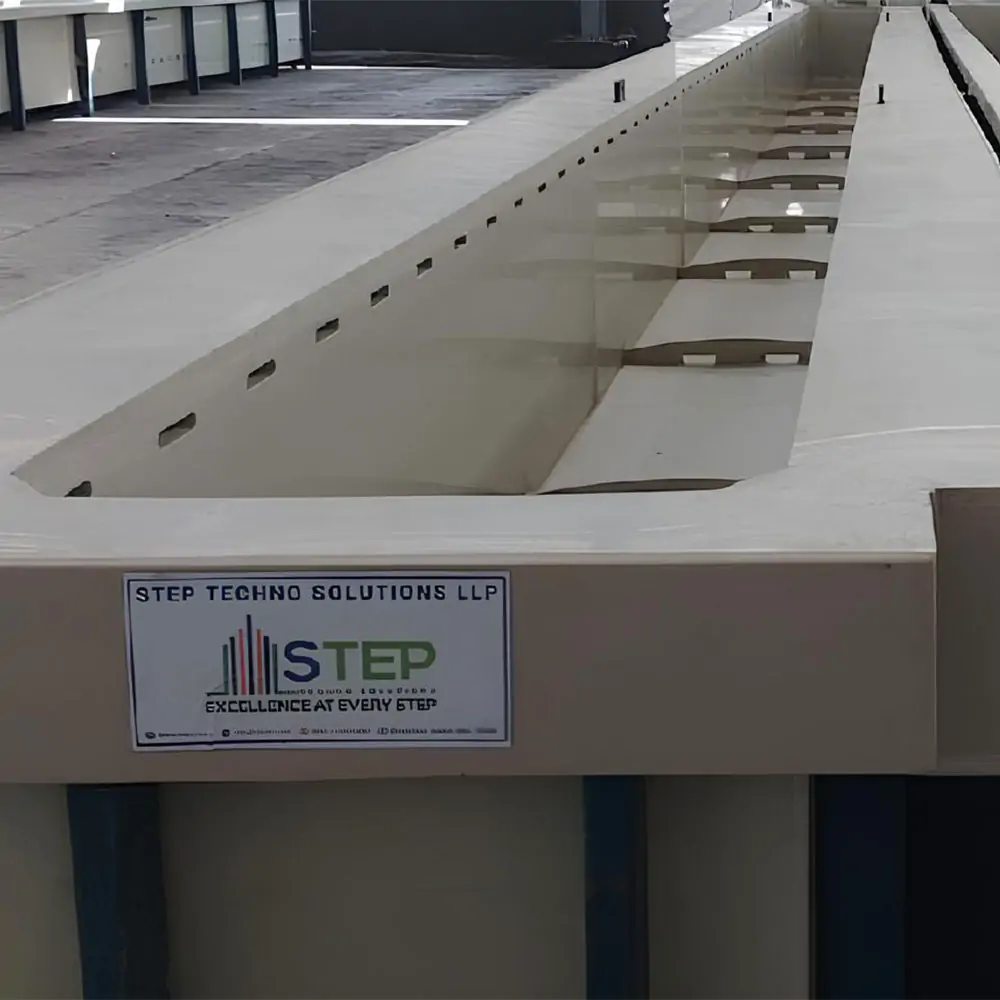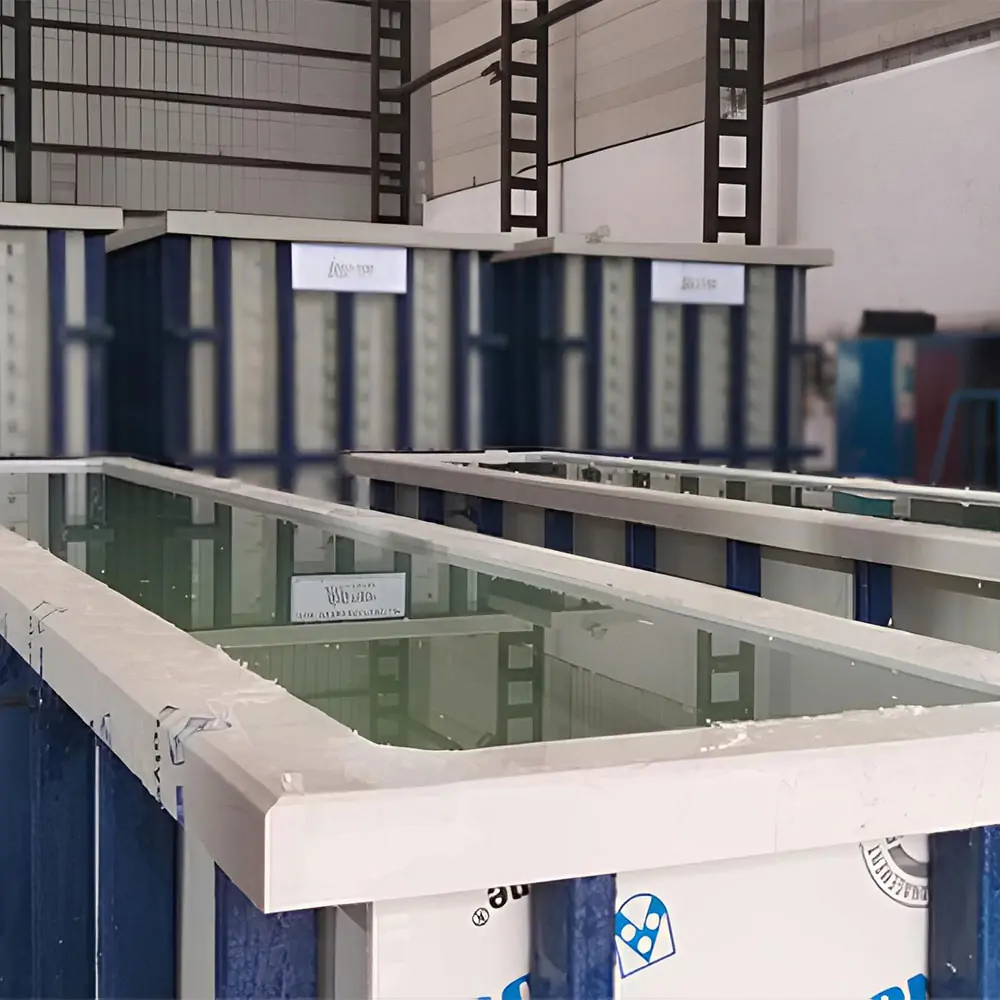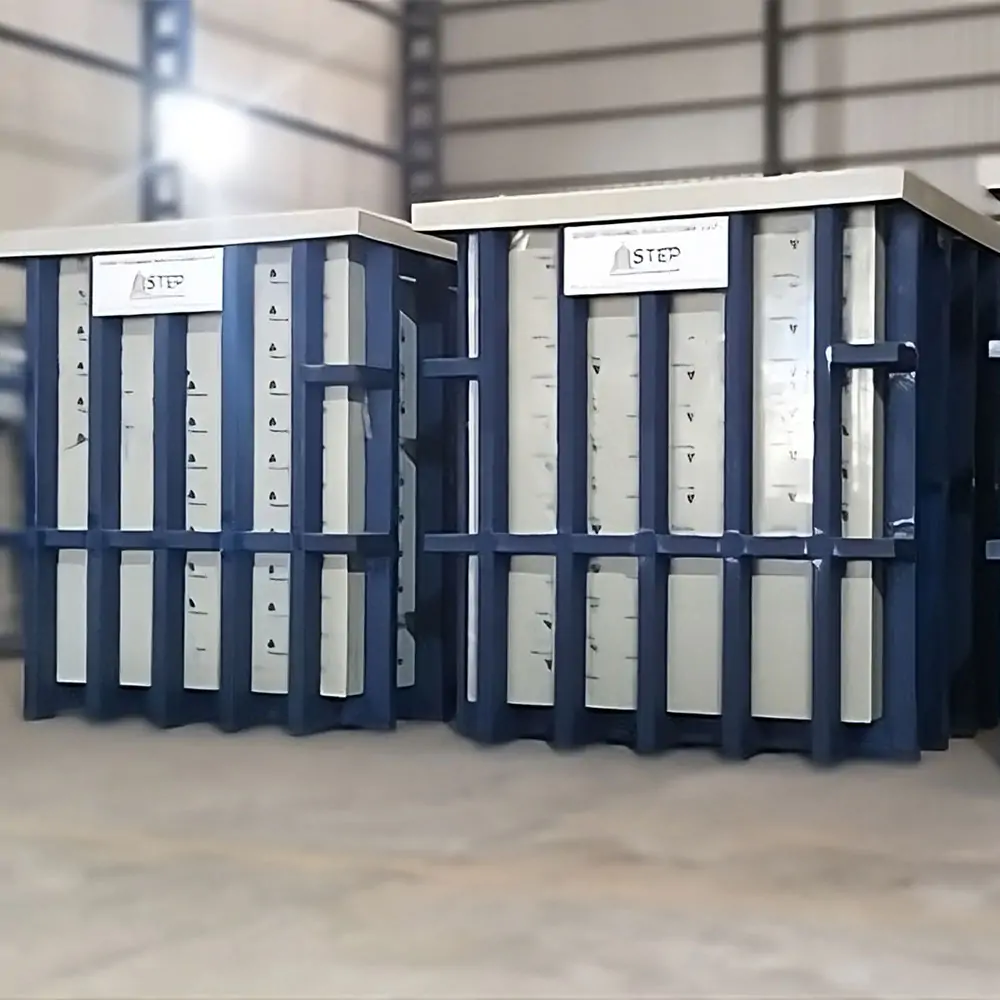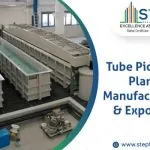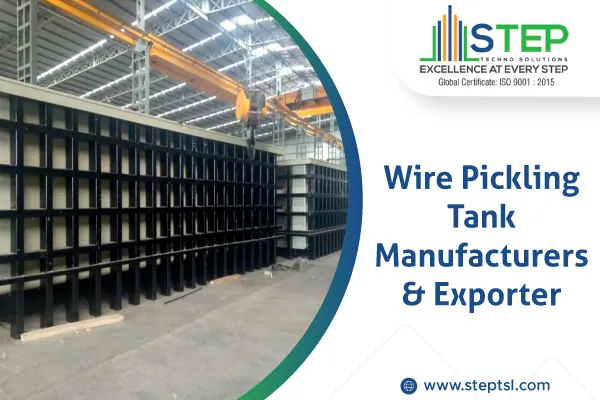High-Quality Wire Pickling Tanks for Efficient Metal Processing
STEP® Techno Solutions LLP is recognized as a top manufacturer and exporter of wire pickling tanks, offering high-quality products that are trusted across industries. These tanks are essential in the metal processing industry, where they help treat metal wires such as steel, copper, and aluminum. The pickling process involves dipping wires into a chemical solution to clean off impurities like rust and scale. This step prepares the metal for further treatments like galvanizing or electroplating, ultimately improving the quality and durability of the wires. With cleaner wires, manufacturers can create products that perform better and last longer.
Wire Pickling Tanks are typically made from materials like Fiberglass Reinforced Plastic (FRP) or High-Density Polyethylene (HDPE). These materials resist the strong chemicals used in the pickling process, making the tanks highly durable. Their sturdy construction allows for safe and efficient metal treatment, making them important equipment in industries like construction and automotive manufacturing.
What is a Wire Pickling Tank?
A Wire Pickling Tanks is designed for cleaning the surface of metal wires. It plays an important role in removing impurities such as rust, mill scale, and other unwanted elements. This process, known as pickling, helps improve the quality of the metal by cleaning it thoroughly before further treatments like coating or galvanizing. Wire pickling tanks are usually built from corrosion-resistant materials such as FRP or HDPE to withstand harsh chemicals like sulfuric or hydrochloric acid.
By treating the wire’s surface, pickling tanks allow manufacturers to produce higher-quality wires that are more durable and better suited for industrial use. Whether it’s for construction, electronics, or automotive applications, these tanks are essential for producing reliable and long-lasting metal wires.
Construction and Materials of Wire Pickling Tanks
Wire Pickling Tanks are crafted using materials that can withstand the challenging environments inside the tank. FRP and HDPE are commonly used because they resist corrosion from the acidic chemicals used in the pickling process. These tanks often come with specialized linings to increase their durability, which helps them maintain their quality even after extensive use. By choosing the right materials, manufacturers like STEP® Techno Solutions LLP create wire pickling tanks that last longer and perform consistently well. These features make the tanks both safe and effective for industrial operations, providing businesses with reliable solutions for their metal treatment processes.
Benefits of Wire Pickling Tanks:
- Surface Cleaning: Efficiently removes rust, scale, and other impurities from metal wires.
- Durability: Helps metal wires stay stronger and last longer by preparing them for additional treatments.
- Improved Production: Clean wires move more smoothly through production, reducing manufacturing issues.
- Better Coating: Prepares wires for coatings like galvanizing, resulting in a smooth and uniform finish.
- Eco-Friendly Options: Can incorporate environmentally friendly chemical solutions and recycling systems.
- Customization: Available in different sizes and designs to meet specific manufacturing needs.
Uses of Wire Pickling Tanks:
- Metal Processing: Essential for treating steel and alloy wires to improve their quality.
- Construction and Automotive Industries: Frequently used to produce high-quality wire products for these sectors.
- Galvanizing Process: Prepares wires for further treatments like galvanizing or electroplating.
- Industrial Production Lines: Integrated into processes like wire drawing, rolling, or extrusion to maintain quality throughout production.
Key Features of Wire Pickling Tanks:
- High-Quality Materials: Made from FRP or HDPE, which are resistant to corrosion.
- Ventilation Systems: Designed to handle the fumes and gases produced during pickling.
- Chemical-Resistant Linings: Built to withstand the acidic environment inside the tank.
- Custom Sizes: Available in various sizes to meet different production demands.
- Automated Control Options: Some models offer automation for better control over chemical usage and temperature.
- Safety Features: Designed with safety in mind, protecting workers and maintaining a safe working environment.
The Role of Wire Pickling Tanks in the Metal Processing Industry
Wire Pickling Tanks are an essential part of metal processing, especially in industries where high-quality metal wires are needed. The tanks help prepare wires for treatments like galvanizing or coating by cleaning off rust and other contaminants. This cleaning process improves the wire’s resistance to corrosion, making it more durable and reliable. For industries like construction, automotive, and electronics, the quality of metal wires is critical. By using wire pickling tanks, manufacturers can consistently produce top-quality wires that meet industry standards and perform exceptionally well in various applications.
STEP® Techno Solutions LLP continues to play a significant role in this industry by providing wire pickling tanks that offer quality and efficiency. Their commitment to quality and innovation makes them a trusted partner for businesses looking to optimize their wire production processes.
Conclusion
Wire Pickling Tanks are important for producing high-quality metal wires that are used across industries. By treating wires before further processing, these tanks help improve the wires’ durability, performance, and resistance to corrosion. STEP® Techno Solutions LLP stands out as a leader in manufacturing these tanks, delivering products that meet the rigorous demands of modern industry. Investing in top-quality wire pickling tanks from STEP® Techno Solutions LLP can help businesses achieve superior results and maintain a competitive edge in their respective markets.

